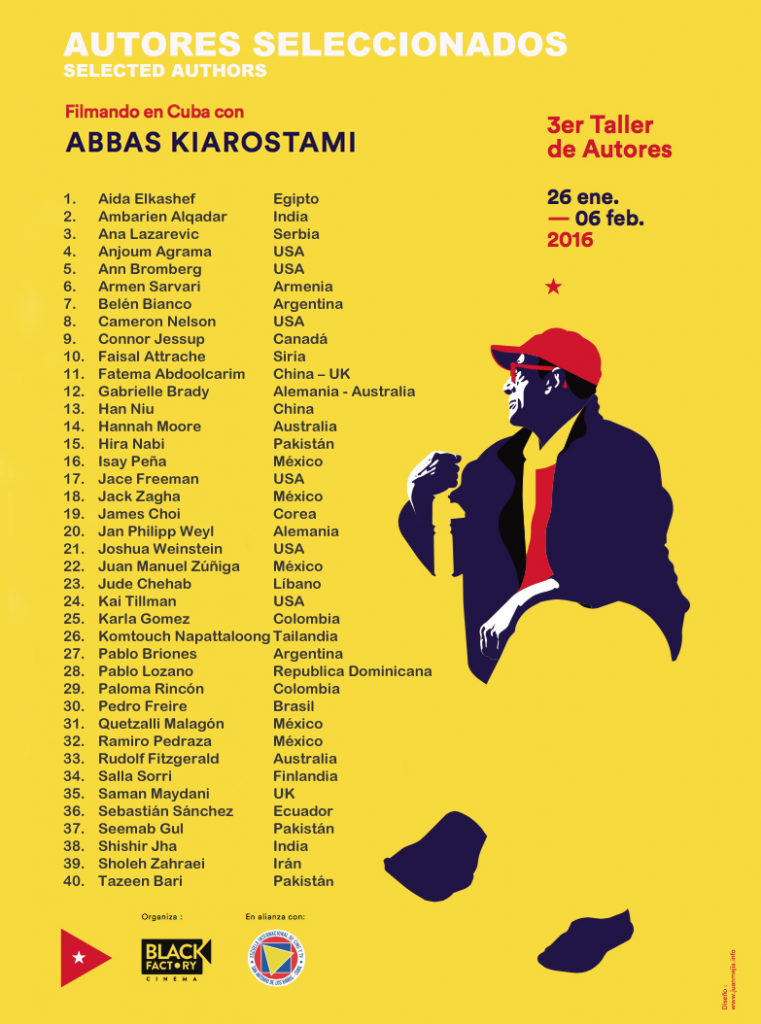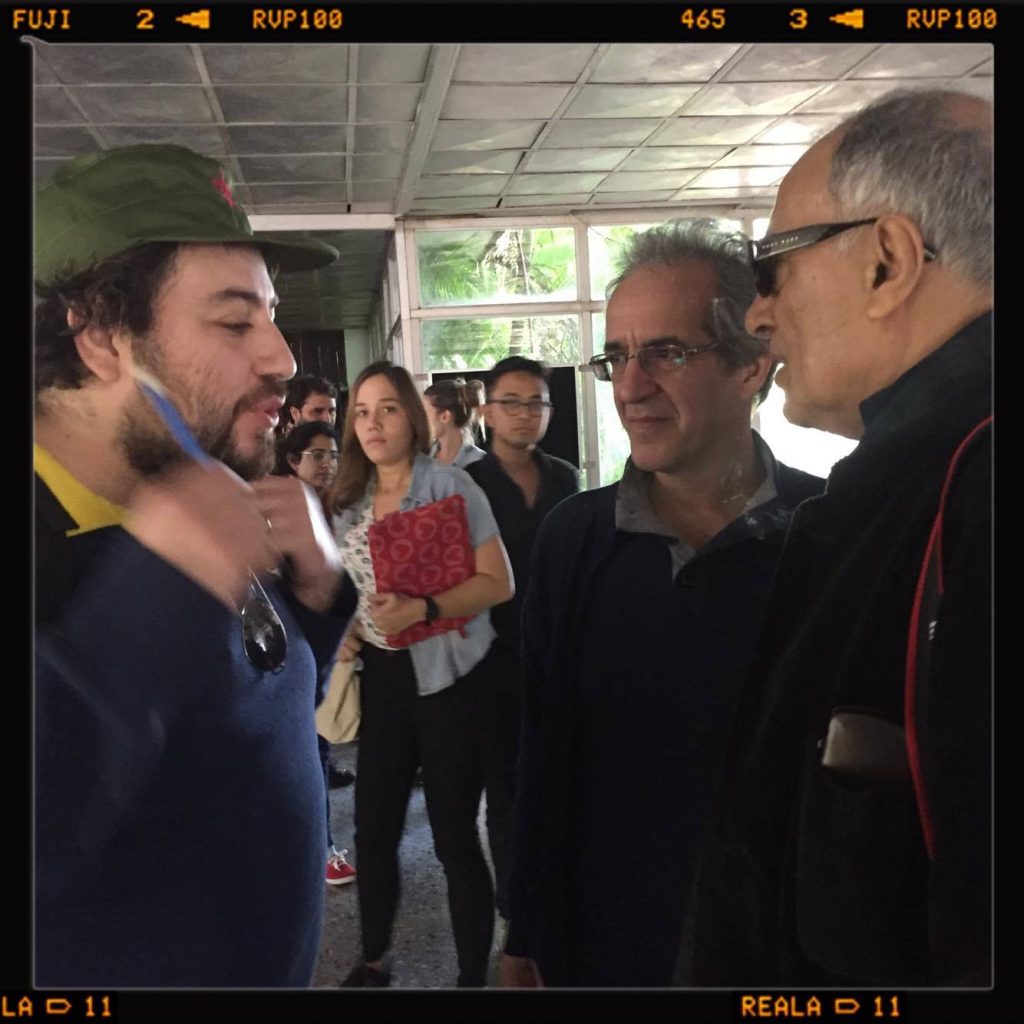Filming in Cuba with Abbas Kiarostami
So finally it’s official! I’m glad to announce that I will be taking part in 2016 filming workshop supervised by Abbas Kiarostami in Cuba. The thrill of working with the man whose work I’ve always admired is a little bit more from the excitement of seeing Cuba which I’ve always wanted to visit.
Here’s a note by Black Factory Cinema, the company that has organized this event about the final selection of auteur filmmakers. Black Cinema Factory is pleased to announce the selected authors for the 3rd practical workshop “Filming in Cuba with Abbas Kiarostami ‘2016. It was a difficult choice! We received more than 300 profiles of young directors from around the world who appreciate the interest in our project of alternative training of filmmakers. Motivated by the quality of the profiles of the participants we have decided to open five more places for the workshop.Congratulations to all those who will begin this adventure with Abbas Kiarostami!

Updated after meeting Kiarostami in Cuba.
“I’ve been waiting for this moment all my life.” This is what I wanted to tell Abbas upon meeting him, but then I thought it sounds very…schmaltzy if I may say, so I walked straight to him at the end of his press conferance on the first day of the workshop and introduced myself in Farsi. It was a strange feeling talking Farsi in such a remote place in the world after so many years. He smiled and started asking me questions about where I came from and where did I go to school. We talked about Cuba and EIC-TV briefly and I offered my translation service for the upcoming workshops which he happily welcomed. What came next, I gotta be honest, hands down, were all parts of the top ten moments in my entire life. I’m not going to bore you bragging about the bulk of our first conversation in this blog for it wasn’t really more than just a friendly chat, but instead I’d rather continue this post with my letter of purpose when I applied to this workshop. Seeing him and having regular conversations with him on daily basis and his approach requires a separate post which I will write when free (AKA never), but for now below you can read my participation motivation letter applying for this workshop.

Here’s my participation motivation letter that I wrote to apply for this workshop.
“My uncle would always preach me about what it was to be a true human and it was him who first introduced me to Kiarostami’s cinema. An Armenian literature teacher who would spend most of his free time reading Chekhov short stories or playing Chopin on his piano in his tiny apartment right next to ours in Tehran. Every once in a while he would take me out to the movies and it was with him when I first saw “Khaneye Doost Kojast?” – Where is the friend’s home?” and it was then, in the last scene of that film, when as the teacher browsed through the pages ofMohamadreza’s notebook, that a tiny flower between the pages is revealed, making my uncle to break into unstoppable tears. Stuck in that dark theater between my weeping uncle and the embarrassing looks of a mocking audience I had only just began to comprehend the genius of Kiarostami’s work, but it took me several more of his films (Among them exclusively “Ten”, which coincided with my parent’s separation and “Ghaziyeh Shekleh aval…”, which triggered a huge passion for interviewing people in me) to realize how emotionally powerful those simple lyrical images of Kiarostami were and how futile the mainstream cinema felt compared to that.
In my later years in film school, frustrated by dull formulated screenplay writing methods of Hollywood I went astray between American independent films, European art house cinema and East Asian new waves. But because of a fairly different background, I had a hard time finding the right way to tell my stories, but eventually and as I familiarized myself with the concept of Transnational Cinema, I came across Kiarostami’s foreign productions and realized that geographical relocation should not stop me from expressing myself through the cinematic language that I am a fond of. I believe that taking part in a workshop conducted by a director who has shaped an important part of my identity and artistic taste will have a great impact on my next film and it will as well be a very vital step in the construction of my point of view both as a director and as a human.”
